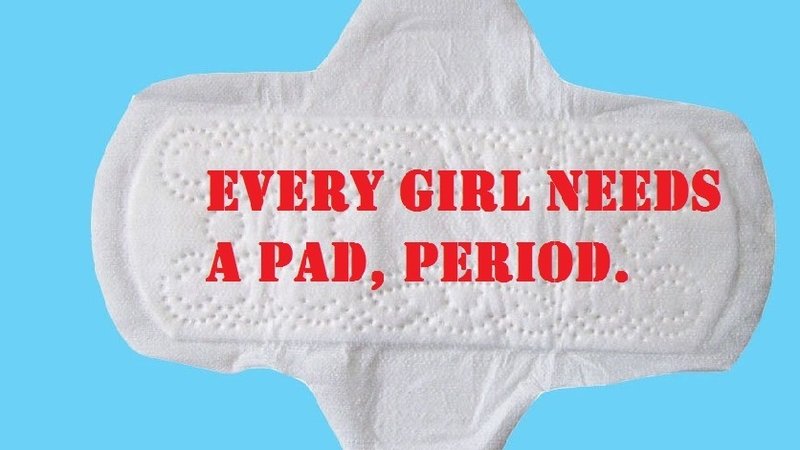Report by the United Nations says one in 10 girls in Africa miss school during their menstruation. When they finally get back to school, they have already fallen behind the rest of their classmates. One frustration after the other while trying to catch up with the rest of the classroom, giving up and dropping out becomes the easiest option. For girls who go to boarding schools, during their menstruation days, they are locked up in dormitories to avoid humiliation in classrooms.
The reality is many parents cannot afford sanitary pads for their girl children. Stretched between putting food on the table, a roof over the head and sending their children to school, buying sanitary pads doesn’t exactly click in mind as a priority.
The girl child is often forced to stop social activities and withdraw from everyone else until her menstruation stops. Alternatively, they could use unsanitary solutions like using an old piece of clothing, tissue papers, or even cotton wools. The bottom line is, whatever alternative solutions they use, often predispose them to high risks of infection; the alternative solutions are in themselves not effective as the leak.
Must Read: Alternative sanitary pads innovation used by girls in Malawi
Some African governments have come out to support free sanitary pads distribution to girls in public school. Take, for instance, Kenya where the government has signed into law a bill authorizing free supply of sanitary pads to teenage girls across all public schools in the country. Zambia too rolled out a similar plan last year targeting all schoolgirls living in rural and semi-rural parts of the country.
Uganda says it can’t afford to donate sanitary pads
The World Banks report says 34% of Ugandans live under the poverty line with an income of less than $2 per day. Therefore you find many school-going-girls from disadvantaged background struggling to find sanitary pads to use during their menstrual cycle; if at all the do find the pads.
It is therefore common to find girls missing school during their menstrual cycle leading to a lot of absenteeism. Vincent Odoi, a teacher at the Wampewo Ntakke Secondary School, told SF Gate:
“We looked at the absenteeism rate, and you would find that in a class if there are six people who are absent, at least four of them are girls. Some boldly came to us and said, ‘When we are on our period there is no care, so that’s why we prefer staying at home.’”
The issue of lack of access to sanitary pads to girls across Africa is a serious matter and sometimes an emotional thing. Experts from different fields in Africa urge African governments to supply free sanitary pads to schoolgirls as a way of curbing the embarrassment the girls have to live through and stop them from dropping out of school.
In Uganda, one activist got into trouble with the political elite the wrong way and went to jail for saying President Yoweri Museveni was “a pair of buttocks.” After the Uganda government reneged on its promise to supply free sanitary pads to schoolgirls across the country.
Another Ugandan, Stella Nyanzi a researcher at the Makerere University in Uganda, is facing criminal charges after accusing the country’s first family of being out of touch with the average Ugandan. Nyanzi made this accusation after the Ugandan government broke its promise citing it cannot afford to donate sanitary pads.
Nyanzi started a campaign dubbed #Pads4GirlsUg saying, “Girls and young women are not going to stop menstruating in the near or far-off future.”



